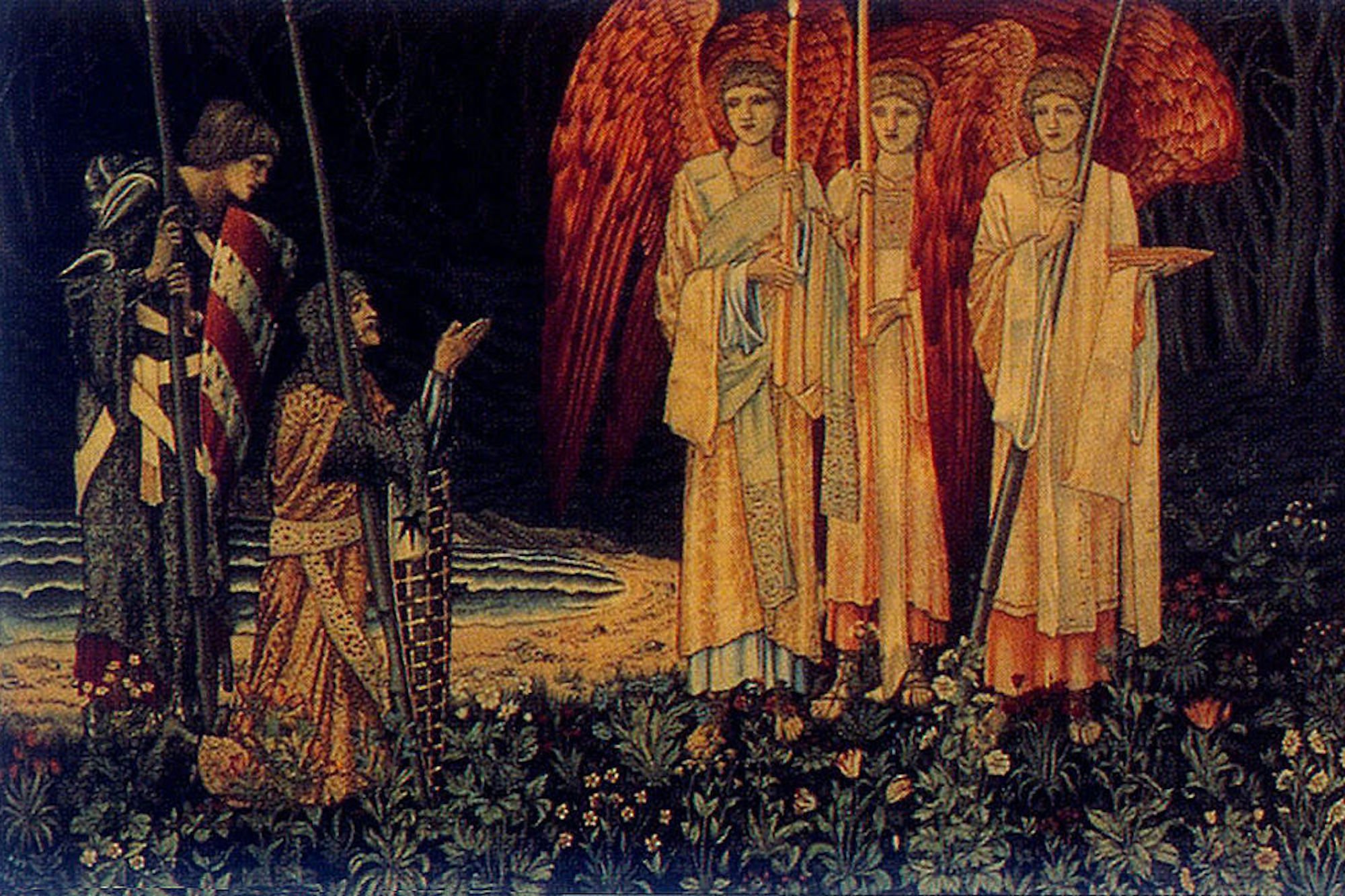Awaiting the King
When James K.A. Smith launched his Cultural Liturgies project in 2009 with the publication of Desiring the Kingdom, he had a niche audience in mind. He was writing for Christian students and faculty, sharing “a vision of what authentic, integral Christian learning looks like, emphasizing how learning is connected to worship and how, together, these constitute practices of formation and discipleship.”
Unpacking the Augustinian idea that we are what we love, Smith argued persuasively that we are always being formed by liturgies – whether those liturgies take place at church, at school, at the mall, or during the national anthem at a football game.
“Liturgies make us certain kinds of people,” he wrote, “and what defines us is what we love.”
So, for the matter at hand in that book, while Christian education has tended to be seen as a matter of the transmission of Christian ideas from faculty to students, Smith argues it ought to be seen as “the formation of a peculiar people.” By all appearances, it seems Desiring the Kingdom has indeed made waves on the campuses of Christian colleges and universities as intended.
But a funny thing happened along the way. A whole range of people started reading and discussing and recommending Desiring the Kingdom – including people like me who didn’t presently have any formal connection to Christian institutions of higher learning.
The fact of this wider readership, in fact, led Smith to adjust his plans for the rest of the trilogy. In the second book, Imagining the Kingdom, Smith drew on the work of two twentieth-century French thinkers to explain how worship works through the interplay of our bodies and imaginations.
Now, in Awaiting the King, the third and final installment of the series, Smith turns his attention to politics, once again in conversation with St. Augustine, as well as with the contemporary Anglican theologian and ethicist Oliver O’Donovan.
There are some other conversation partners that will be familiar to readers of this blog as well. “My hope,” Smith writes, “is that this book provides a new frame for political theology and public engagement that moves us beyond the postfundamentalist need for permission (“the good of politics”) as well as the (understandable) suspicion of liberalism and the state (the so-called Benedict Option).”
Our task, Smith writes, is to learn how to “actively wait” in this time between the times – seeing ourselves as “resident aliens” who are nonetheless “invested in the state, in all of its glorious failing.”
Early in the book, Smith shows how political rituals have the power of religious rites, at times deforming our loves by aiming our hearts at something other than God. “The political is not content to remain penultimate,” he writes. After all, “the state doesn’t just ask me to make a decision; it asks me to pledge allegiance.” Later on, he puts it this way: “I am subject to competing apprenticeships of the heart. I am concurrently enrolled in competing pedagogies of desire.”
Smith situates his reconfiguration of political theology in the church as polis, inviting us “to see the body of Christ as a political body that centers our political identity and shapes our habits of solidarity.” Poignantly, he contends that the way the whole story of Scripture is woven into liturgical worship over the course of the Christian year means that sooner or later, “our learned political leanings” will be challenged and haunted. The lectionary precludes echo chambers.
There are parts of the book that challenged me, like his critique of “common grace” theology as a cover for what he calls “practical atheism.” While many have spoken of common grace as a helpful way of understanding why God sometimes chooses to restrain evil and to bless even those who do not turn to him, Smith views the paradigm with suspicion: “Talk of common grace abounds where a theology of providence is lacking.” I expect that others who are far wiser than myself will chime in with their responses and rebuttals, and I look forward to listening in and learning from these future conversations.
One of the things I appreciate most about this book is the way Smith repeatedly connects politics and worship to teleology, “the ends we are pursuing, the vision of the good that animates our collaborations and common life.” Which, of course, brings us to eschatology. What we believe about the culmination of the biblical story has a tremendous impact on the way we live as “resident aliens” today.
“Our teleology is an eschatology,” Smith writes, “a hope for kingdom come that arrives by the grace of providence and doesn’t arrive without the return of the risen King. And this changes everything. A teleology that is at once an eschatology will be countercultural to every political pretension.”
So during this time between the times, when politics is messy and we are all too often tempted to despair, we do not live as those without hope. Nor do we deceive ourselves into thinking that the coming of the kingdom will be our doing. Instead, we seek to live into our citizenship in the city of God, here and now.
“If the church is a centrifuge, sending out image-bearers to take up their commission in God’s good-but-broken world, it must also be a community of practice that centripetally gathers for dispositional reformation,” Smith writes. “In this way, Christian worship constitutes the ‘civics’ of the city of God, forming people who are sent out for the sake of the common good, sent to love not only their neighbors but even their enemies.”
